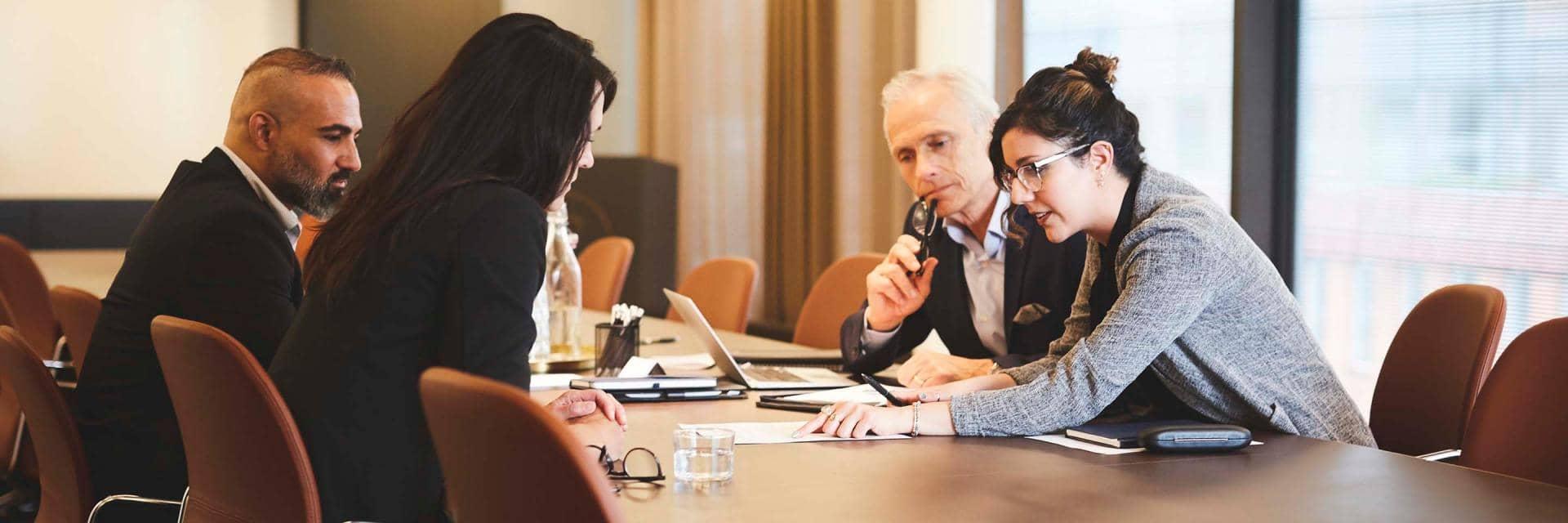
Dedicated to helping you
To find out how Barclays can help you make your cash management and payments more efficient, contact your Relationship Manager.

17 November 2021
The ever-evolving expectations of UHNW clients, coupled with a robust-but-uncertain global economic recovery, demand that fiduciaries stay agile and flexible, if they’re to survive-and-thrive in an increasingly competitive market place.
In the following short videos, our experts give their views on how fiduciaries can balance the competing dynamics of industry pressures and economic challenges, to offer a service that is truly differentiating and ambitious.
Simon Smith: For the fiduciary and the broader offshore market, we see a massive opportunity in helping clients with their investment needs.
But to do so we think establishing a structure and a framework is really beneficial.
We think that trust with clients and trust with your adviser is absolutely critical.
And to do that, selecting a partner that has sufficient breadth and depth to address those needs.
Henk Potts: UHNW individuals are looking to their investment partners for a range of specialisations.
They know that they need to have analysts who are looking at the global economy, ascertaining what changes there mean in terms of financial markets, you need individual asset class specialists as well, identifying opportunities today but also some of those long term trends.
Think about portfolio managers,these are people that are intimately involved in specific investment decisions.
You need quantitative analysis in there - balancing long term risk and reward assumptions.
But also you need to think about impact investment. And that's the big change that's taken place over the course of the past couple of years, this has now become a fundamental part of the investment process.
So coordinating that together, coming up with a cohesive investment strategy is what UHNW individuals are demanding from their investment partners today.
Simon Smith: From a trustees perspective, to build credible investment relationships with a client, we believe a number of things are important:first telegraphing the benefit of a deeper investment relationship to encourage clients to share information and engage in the process.
Be clear on the benefits of getting it right and the downside of getting it wrong. Next, exploring the client's blind spots.For example, do they need help understanding the market? Are there any personal worries that need addressing before they invest?
There should be a joint decision made on the external support required to build a portfolio, we find there's a balance to be struck between willingness to help inform the choice versus delegation time and cost but taking ownership of the process ultimately builds trust and long-term value.
Simon Smith: Next, when selecting an investment advisor, we believe it's important to take the time to understand the difference between suitability and advice. Critically, there must be trust in the advisor and due diligence helps enhance this.
Alistair Randall: So the key points for fiduciaries to look for would be a strong track record, but a strong track record which stands alongside a consistent team those need to marry together.
Ensuring that the investment time horizons of that investment philosophy sit well with the long term investment time horizons of the UHNW and transparency, making sure that your client and the fiduciary understand what they own.
Simon Smith: Once a recommendation has been made, take time to step back and consider how it works holistically. Any proposal should offer sufficient opportunity for good risk adjusted performance, diversification de-correlation and make sense to everyone that's involved.
This is typically achieved using a public market, highly liquid core multi asset class portfolio, and the use of well researched satellites to create the opportunity for excess returns or insulate from downturns.
Finally, test the level of servicing and communication you and your clients will receive over time. Review the portfolio regularly but don't fall into the trap of over-trading. If you select the correct solutions at the outset, then using time and patience becomes your biggest competitive advantage.
There is of course no silver bullet, but taking these steps establishes a structure that delivers client confidence and a portfolio with the best opportunity to exceed expectations across market cycles.
To find out how Barclays can help you make your cash management and payments more efficient, contact your Relationship Manager.
If you have any questions or want to discuss your investment options, contact us.
